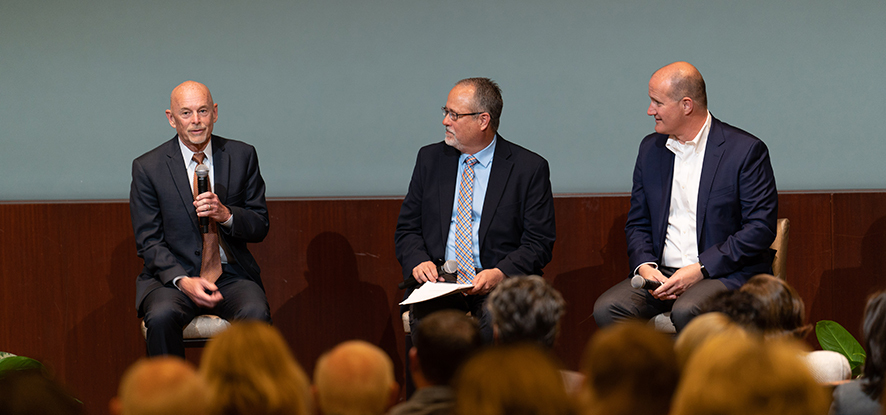Our Story

High-Caliber Research at the Core
The need for criminal justice reform has brought together leaders from both sides of the political aisle. Regrettably, solutions to criminal justice reform often remain difficult to fund because of budgetary constraints. Peer-reviewed publications, however, continue to demonstrate that faith-based approaches can foster both increased rehabilitation and reduced recidivism, making for safer prisons and communities. In an age of evidence-based government, empirical research can provide legal scholars, experts, and policymakers—in government as well as the private sector—the wherewithal to bring about real systemic change. Pepperdine’s Center for Faith and the Common Good explores smarter and more effective interventions, return on investment, program replication, and justice reform.
"Pepperdine is uniquely prepared to bring together strong leadership, top scholars, and the desire to affect public policy at local, state, and national levels. I am convinced Pepperdine is ready to play a prominent role in facing unprecedented societal challenges, and I look forward to being part of that effort."
—Byron Johnson, Executive Director
Strengthened by Interdisciplinary Collaboration
The center greatly benefits from the expertise found within many departments and schools
at Pepperdine. One of the center’s key partners will be the Sudreau Global Justice
Institute, an international organization, based out of Pepperdine’s Caruso School
of Law, working to provide holistic solutions to chronic injustice and equip others
to do the same. The institute has a tremendous track record in having helped to reform
the justice system in Uganda, as well as the justice systems in other African nations.
The Sudreau Institute will partner with top legal minds in order to produce scholarship
that can inform long-overdue and much-needed legislation that will bolster the work
of innovative and effective faith-based approaches to reform. Further, the newly formed
Religious Liberty Legal Clinic at Pepperdine’s Caruso School of Law—a partnership
between Pepperdine and the international law firm Jones Day—would add litigation support
when needed.
Influencing Systemic Changes
The center will work to reshape current public policy related to criminal justice reform. One important aim in this regard would be to change current policies that restrict or otherwise work against faith-based solutions that are demonstrably effective. Pepperdine’s School of Public Policy is uniquely positioned to play this critical role. Pepperdine’s public policy program—masterminded by renowned political scientist, James Q. Wilson—prepares future policymakers to employ their “moral sense” combined with developed skills in quantitative policy analysis. Moreover, the school is committed—through scholarship and student/alumni engagement—to the important role of faith-based civil society organizations in shaping sustainable public policies. Through alumni and professional relationships in many state capitals and on Capitol Hill, the school looks forward to promoting the results of the above-mentioned research to legislators and corrections agency leaders.
Though the center’s initial focus is on the area of correctional reform, the Center for Faith and the Common Good will also seek to address a host of difficult problems facing contemporary societies. These include homelessness, domestic violence, drug and alcohol addiction, suicide, sex trafficking, foster care and adoption, and disabilities.